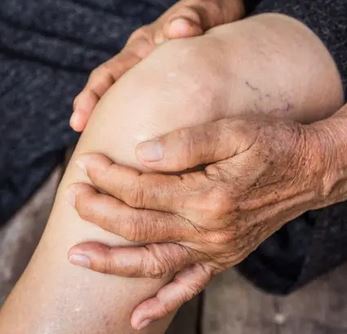Aging and Chronic Knee Pain
This research is being done in order to broaden our understanding of how pain mechanisms differ between older adults with chronic knee pain and pain-free older adults. Additionally, we hope to observe differences between how different muscles are activated during a knee extension in a group of older adults experiencing knee pain versus pain free (no knee pain) older adult group. We will compare these findings to a group of young adults to help determine the effect that aging has on both pain mechanisms as well as muscle activation.
We expect that you will be in this research study for approximately 1-2 weeks. You will be asked to come into the UCF CNS laboratory for 3 visits: one familiarization visit and two testing visits. Each visit will last at maximum 90 minutes. During the familiarization visit you will fill out some paperwork to learn about the upcoming protocols, conduct some baseline demographic measures, and then we will get you comfortable with the testing procedures. During one of the testing sessions, you will undergo a protocol for testing pain modulation. During the second testing session, you will be performing maximal voluntary contractions of the knee for muscle analysis.
Inclusion Qualifications:
- Healthy adult between the ages of 18-25 years with no knee pain.
- Healthy adult at least 50 years of age with no knee pain.
- Healthy adult at least 50 years of age with knee pain.
Exclusion Qualifications:
You may not participate in this research opportunity if any of the following applies to you:- Current use of opioid medication
- Chronic use of analgesic medication
- Contraindication to the application of ice (uncontrolled hypertension defined as blood pressure > 140/90 mmHg, cold urticaria, cryoglobulinemia, paroxysmal cold hemoglobinuria, circulatory compromise)
- Any systemic medical conditions that impair sensation
- Widespread pain condition, including fibromyalgia
- History of orthopedic surgery or fracture within the previous 6 months
- History of Total Knee Arthroplasty (TKA)
- Premenopausal females
- Ongoing participation in other interventions that may affect pain (e.g., physical therapy, acupuncture, chiropractic, etc.)
- Body mass index > 35.0 kg/m2, but not less than 18.5 kg/m2
- Major surgery or hospitalization within the previous 6 months
- Heart attack within the previous 6 months
- Self-reported fall within the previous 6 months
- Treatment for cancer within the previous year
- History of Stroke
- Major neuromuscular and/or degenerative diseases (e.g., Myasthenia Gravis, Charcot-Marie-Tooth disease, Parkinson’s disease, ALS, Huntington’s disease, MS, etc.)
- Uncontrolled hypertension or diabetes
- Chronic kidney disease
- Changes in medications or therapies that may alter hormone levels within the previous 6 months (e.g., testosterone replacement therapy)
- Diagnosis of Alzheimer’s disease or severe cognitive impairment (≤9 on the mini–mental state examination)
- Clotting disorders
- Untreated deep vein thrombosis
- Limb amputation
Get Notified of Future Opportunities
Subscribe to our email list to be automatically notified of all future research participation opportunities as soon as they become available.PI: Matt S. Stock
IRB Expiration May 27, 2025
August 22, 2024
EDUCATION COMPLEX AND GYM
12494 University Blvd
174A
Orlando, FL 32816
Number of visits: 3
Expected time per visit: 90 minutes
Type: T-shirt ($25 value)
Emily Parsowith
Kinesiology
Physical Therapy
Exercise Physiology & Rehabilitation Science

